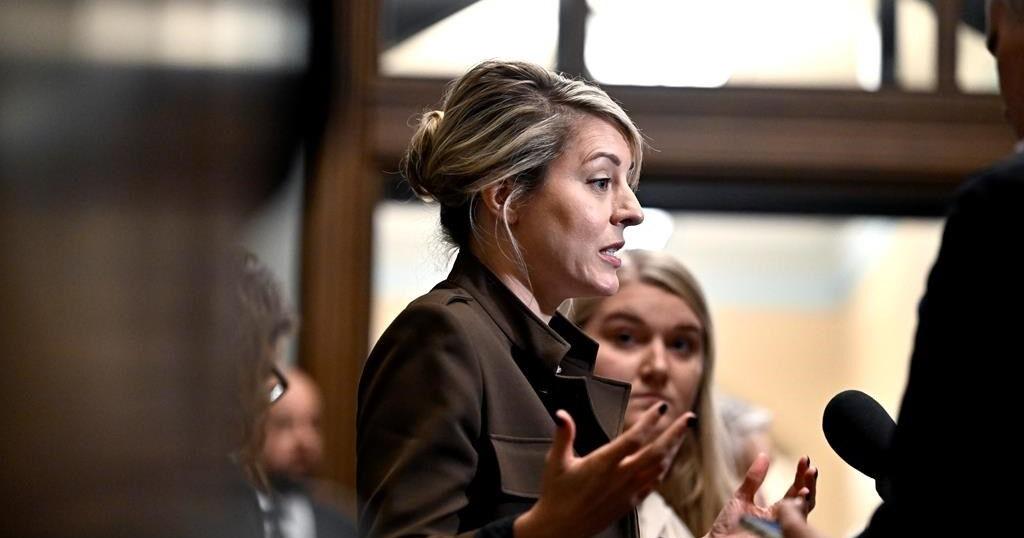A Toronto artist based in Florida says he’s anxiously waiting to ensure the safety of his friends in the state and assess the potentially catastrophic damage to his property as Hurricane Milton barrels towards his community just outside Sarasota.
He’s just one of many Canadians who own homes in the state. Like him, many have fled because of this hurricane or its predecessor Helene, which unleashed devastation across several southern states just a few weeks ago.
But some are still there with plans to hunker down. Foreign Affairs Minister Mélanie Joly was urging them to leave Wednesday. She said people planning trips to Florida should postpone as the state braces for the impact of the hurricane.
Speaking in a phone interview from Toronto, Viktor Mitic, an artist who owns a studio in Siesta Key, Fla., said he was able to flee just before Helene, but said he’s worried about his friends and neighbours who are still in the state.
“I have friends, they have lost everything,” he said. “A couple was staying at my place trying to recover because they lost their homes, they lost their cars, and they were trying to pick up the pieces. I had to tell them to leave.
“There’s going to be a lot of people who are going to be suffering through a lot of stuff,” he said. “I feel like somebody punched me in the stomach — that’s how I feel the whole day today.”
Mitic added he believes the sculptures and artworks still at his studio, worth millions, won’t survive as Hurricane Milton unleashes a barrage of rain and high-speed winds in the area.
“I think it’s all going to be gone by tomorrow morning,” Mitic said. He added that he had planned to head back to Florida on Tuesday night and ship his artwork to Canada, but the plans had to be cancelled.
“I don’t know what’s going to happen … I’m pacing up and down looking at the news,” he said.
The storm was downgraded early Wednesday evening to a Category 3, but is still expected to bring deadly storm surge, rain and winds. The National Weather Service said seven tornadoes have also hit the state in advance of Milton.
It was expected to make landfall later on Wednesday in the Tampa Bay area, which is home to more than 3.3 million people, and then move east affecting other populated areas including Sarasota, Orlando and Daytona Beach.
Millions of people have been ordered to evacuate across 11 Florida counties. In Pasco County, north of Tampa, officials have warned that if residents have not yet evacuated, they are advised to ride out the storm where they are.
The U.S. Coast Guard also said Wednesday that it is on standby, readying to help with search and rescue, provide assistance in assessing damage and responding to marine pollution incidents.
Florida is a popular destination for Canadian snowbirds, particularly in the winter, though Joly said her office doesn’t know exactly how many Canadians are now in the area.
She said her office has been in contact with American officials and that any Canadians who are registered with the embassy will have received an email telling them to leave.
This report by The Canadian Press was first published Oct. 9, 2024.
— With files from The Associated Press.
